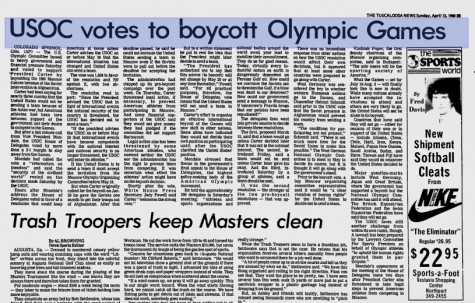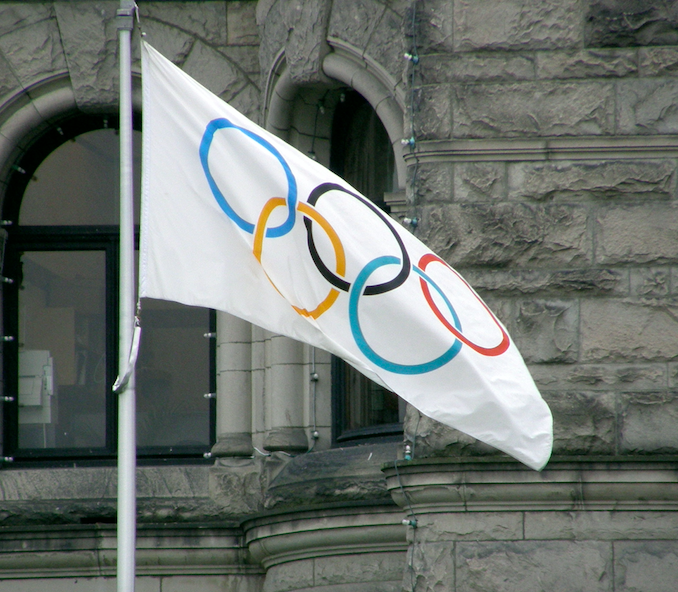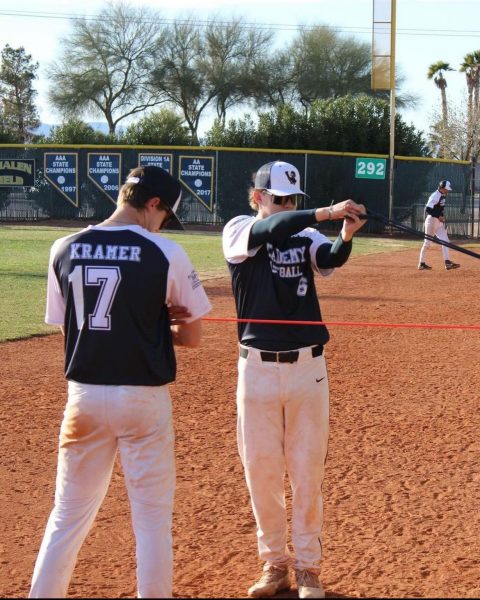The Olympic Decision
When the United States faces the decision to boycott an Olympic Games, which act as the symbol for competition and excellence between nations, certain factors come into play. In 1936, the United States Olympic Committee unanimously voted to attend the Summer Games in Berlin. In 1980, the United States boycotted the Summer Games in Moscow. Both had consequences and both have changed the lives of athletes, politicians, and Americans everywhere. With the recent release of the movie, Race, with the track star Jessie Owens, one must wonder what behind-the-scenes arrangements took place that led to the United States attending the Berlin games, but one must also wonder why the U.S. went in 1936 and not in 1980. While both Germany and the Soviet Union were taking part in affairs that the U.S. disapproved of, how did the decisions made by the United States Olympic Committee affect American athletes?
While taking a look at world events going on before both games, one must recognize that Nazi Germany was participating in racially discriminating crimes and the USSR had their troops illegally placed within Afghanistan. Before both games, a vote went to the USOC, and both times the votes were heavily influenced.
In 1934, Avery Brundage was sent to Germany for a fact finding mission to determine if the Nazi practices were held to be true. Brundage returned home and reported his findings that American athletes would not be discriminated and that Jewish athletes were being treated well. After a vote in the Amateur Athletic Union and American Olympic Committee (the two governing bodies in 1936) the United States decided to send the athletes to Berlin. Brundage has been known as an avid advocate for the true Olympic Spirit and movement, but after the games, he developed a bad reputation surrounded in controversies regarding how he turned a blind eye to clear discrimination.
After the Iranian Hostage Crisis and Soviet Involvement in Afghanistan, President Jimmy Carter decided to persuade and heavily influence the USOC’s vote to boycott the Olympics for political gains. In many ways, the 1980 Boycott brings up controversies just as well because now it is the athletes who have been immensely effected. Imagine working your whole life towards a goal, an idea, a dream to compete in a place where you aren’t just competing for yourself anymore, but for your nation. The Olympic creed declares that, “the most important thing in the Olympic Games is not to win but to take part, just as the most important thing in life is not the triumph but the struggle. The essential thing is not to have conquered but to have fought well.” Should the decision to send athletes be left to a committee that has no idea the sacrifices these athletes have built themselves on? Or should the decision be left to the morality of an athlete instead?
No matter the case, many believed the boycott of 1980 to be of great failure. While 55% of Americans favored a boycott, Olympians hated it. Julian Roosevelt, an American member of the International Olympic Committee, asserted, “Any boycott isn’t going to change the Soviets’ mind and isn’t going to get troops out of Afghanistan.” Al Oerter, a four-time Olympic gold medal winner, echoed, “The only way to compete against Moscow is to stuff it down their throats in their own backyard.” This was the mentality of the 1936 U.S. Olympic team that sent Jessie Owens, “The Boy’s in the Boat”, Louis Zamperini, and countless others to snatch the gold medals off competitors (and German) necks. At least in 1936, the Olympians had the chance to prove themselves not only to their country, but to the world.
Another fact to note is that the Soviet Union’s Olympic team still participated in the February 1980 Winter Games in Lake Placid, N.Y. even after Carter’s threat to boycott- does this show strength? Ignorance? Or a will to stay out of athletic affairs? In a time of intense mention between the USSR and the United States, the defeat of the Soviet hockey team in the winter Olympics in Lake Placid was considered one of the countries greatest victories over the powerhouse Soviets. If the the United States Olympic team had been given the chance to attend the Summer Olympics would more victories against the Soviets sparked the American public’s support? This debate has been widely discussed and the book Dropping the Torch: Jimmy Carter, the Olympic Boycott, and the Cold War by Nicholas Evan Sarantakes goes over the topic in depth and provides deep insight.

While both decisions affect the lives of many, they share many of the same moral dilemmas. However, what separates the decision made in 1936 from the boycott in 1980 was the lack of political, government influence. President Franklin D. Roosevelt continued a 40-year tradition in which the American Olympic Committee operated independently of outside influence, where-as, President Jimmy Carter, made an announcement supporting the boycott of the Olympics. Through it all, decisions were made, lives were affected, and many protested in either favor. Many Americans believe that the effect on the athletes should be considered more heavily than the politics surrounding it.

I am currently a Senior at Air Academy High School and Senior Sports Editor of the Jetsream Journal. I kinda like math and sometimes I run, a lot. I eat...














Jenny Beth Maynard • Mar 16, 2016 at 10:30 am
What a great point. The Olympics are not just for public entertainment. The athletes take a toll when the government intervenes.
Jake Thornally • Mar 16, 2016 at 10:08 am
SPORTZ